

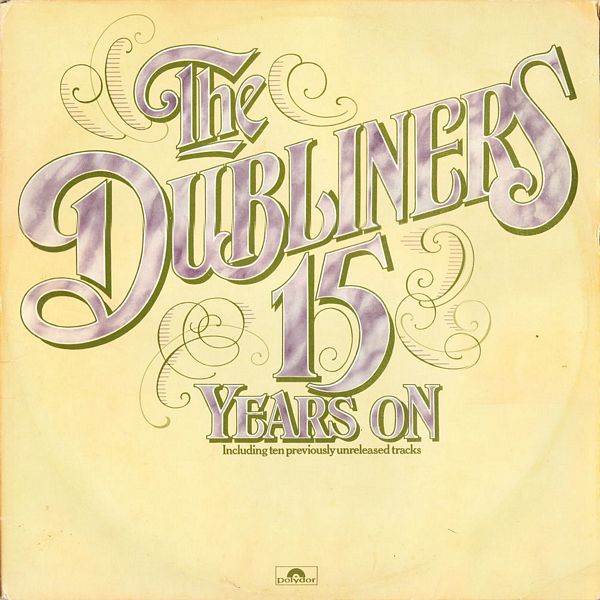 |
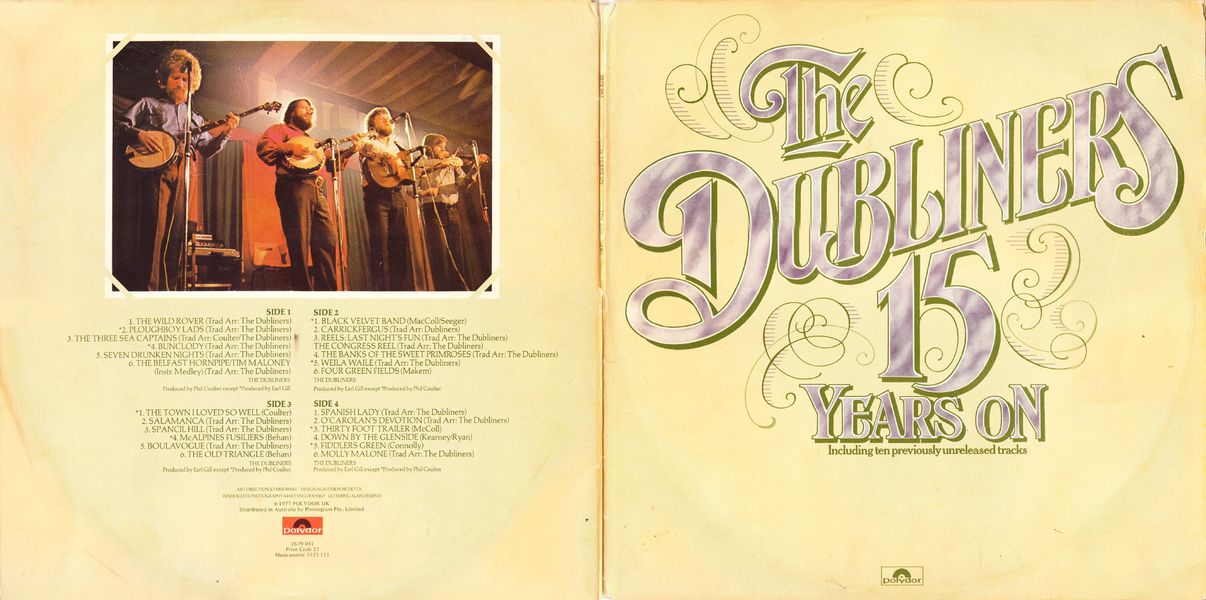
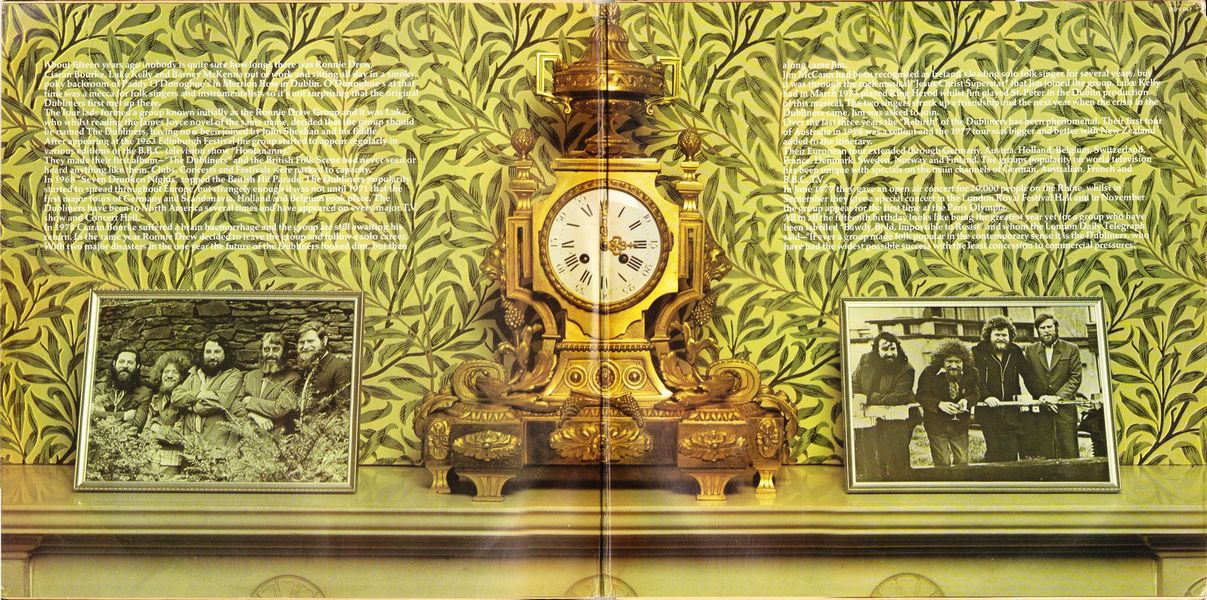 |
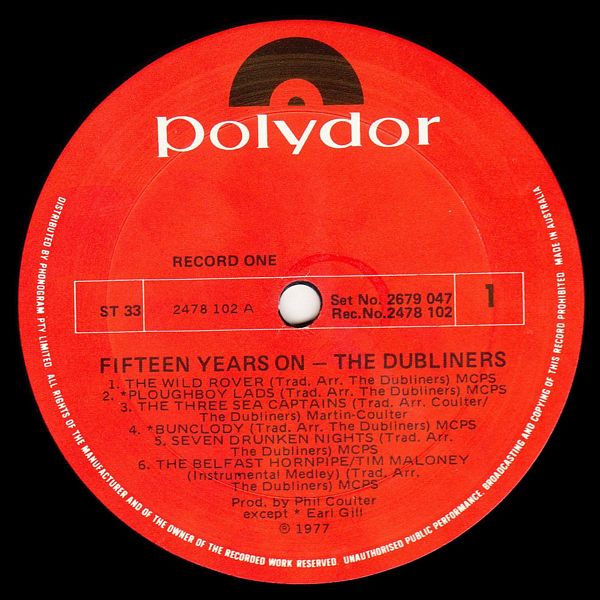
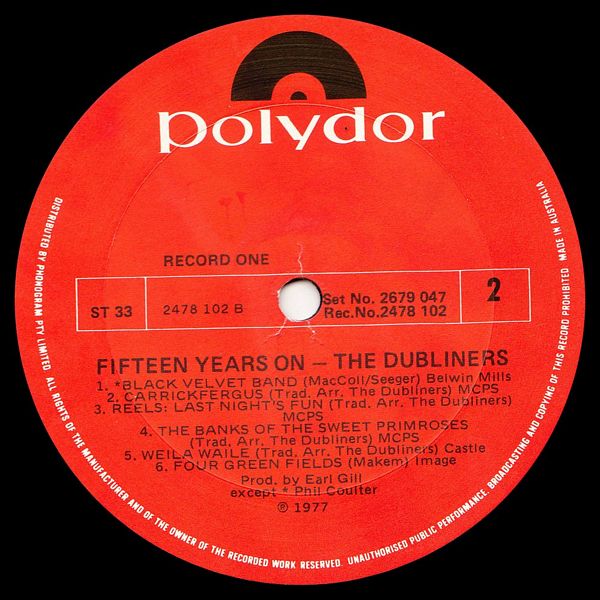
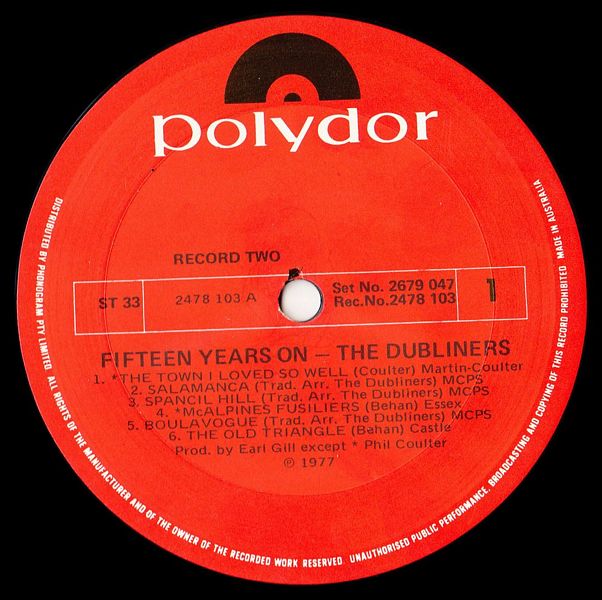
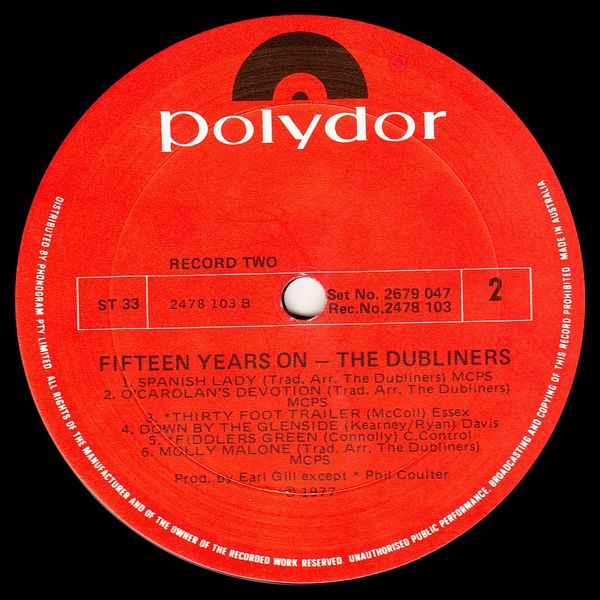 |
Sleeve Notes
About fifteen years ago, there was Ronnie Drew, Ciarán Bourke, Luke Kelly & Barney McKenna, out of work and sitting all day in a smoky back-room of O'Donoghue's in Merrion Row in Dublin. O'Donoghue's at that time was a mecca for folk singers and instrumentalists so it's not surprising that the original Dubliners first met there.The four lads formed a group known initially as the Ronnie Drew Group and it was Luke who whilst reading the James Joyce novel of the same name, suggested that the group should be named THE DUBLINERS.
Meanwhile they had been joined by the fiddle player, John Sheahan. After appearing at the 1963 Edinburgh Festival, the group started to perform regularly in various editions of the B.B.C. television show "Hootananny". They made their first album and the English Folk Scene had never seen or heard anything like them. Clubs, Concerts and Festivals were packed to capacity.
In 1968 their record "Seven Drunken Nights" topped the English Hit Parade. The Dubliners' popularity started to spread throughout Europe. In 1971 they toured for the first time through Germany, Scandinavia, Holland and Belgium. Then followed several tours to North America.
In 1974 Ciarán Bourke suffered a brain hemorrhage and the group are still awaiting his return. In the same year Ronnie Drew decided to leave the group and follow a solo career. With two major disasters in the one year the future of the Dubliners looked dim, but then along came Jim.
Jim McCann had been recognised as Ireland's leading solo folk singer for several years, but it was through the rock musical "Jesus Christ Superstar" that Jim joined the group.
Luke Kelly had in March 1973 played King Herod whilst Jim played St. Peter in the Dublin production of this musical. The two singers struck up a friendship and when the crisis in the Dubliners came, Jim was asked to join. Over the last three year the "Rebirth" of the Dubliners has been phenomenal. Their first tour of Australia in 1976 was a sellout. The 1977 tour was even bigger and better with New Zealand added to the itinerary. Their European tour extended through Germany, Austria, Holland, Belgium Switzerland, France, Denmark, Sweden, Norway and Finland.
The groups popularity on world television has been unique with specials on the mains channels of German, Australian, French and BBC TV.
In June 1977 they gave an open air concert for 20,000 people on the Rhine, whilst in September, they gave a special concert in the London Royal Festival Hall and in November the group appear for the first time at the Paris Olympia.
All in all the fifteenth birthday looks like the greatest year yet for a group who have been labeled "Bawdy, Bold, Impossible to Resist" and whom the London Daily Telegraph said — "If ever a group made folk music popular in the contemporary sense it is the Dubliners, who have had the widest possible success with the least concession to commercial pressure."